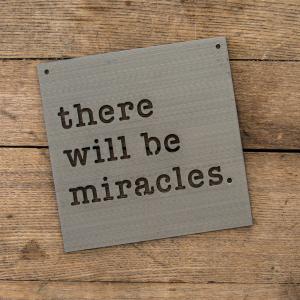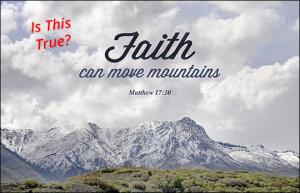
Should Jesus have worked more miracles than he did? The atheist says, of course he should have. If he was God and if God is what Christians believe, Jesus could have cured every sick person in Palestine. Jesus said, if you have two coats, share with one who has none. The Church should apply the same logic to its God.
Twelfth in the series “Stories of Jesus and the Character of God.” In this series I probe what historical Jesus scholars can say about the humanness and the earthly career of Jesus. Beyond that historical research cannot go. The ultimate objective is to let this Jesus reveal the character of God. Contents and links to other entries in the series here.
The prevalence and persistence of suffering in the world, especially undeserved suffering, is a powerful argument for the atheist inside us. Jesus gave relief to suffering people by working some miracles, but not as many as, it seems, he could have. Why not?
Asking that question is thinking in terms of Jesus’ power. I doubt that Jesus thought that way. For Jesus it wasn’t “I can do this.” Rather, “This is what God’s Kingdom is like.” And, “Look, God’s Kingdom is beginning to make itself felt in the midst of this world’s kingdoms.” I think that would have been Jesus answer to anyone who asked him, “How did you do that?”
The ways of God
In the 21st century, we Christians have to think about how God’s Kingdom happens if we’re going to be part of it. We are among those disciples whom Jesus sends to cast out devils, heal the sick, and announce the good news of the Kingdom. We don’t have much hope of doing that without the help of the laws of nature, which science reveals. But with our understanding of nature, we can do some amazing things.
The science of medicine helps us cure diseases of the body. With psychology we cast out the devils of the mind sometimes. There are lots of other “devils” that we are less successful with, but we certainly are expected to work on them. And we certainly can if we wish. These are devils like poverty, war, discrimination, environmental destruction. And there are personal “devils” – pride, laziness, hopelessness. We know perfectly natural cures for all of these devils. In actions of people, some extraordinary and some just like ourselves, God’s Kingdom lives.
A religious person might attribute to God a healing that doctors can’t explain. But God’s ways are broader than that. We probably don’t think “miracle” when we think we know what procedures effected a cure, but maybe we should. If God can work through a chain of causes that we don’t understand, God can as easily work through one that we do understand.
The world is familiar enough with miracles of the first kind, the baffling ones. I don’t mean only the Christian world. The miracle phenomenon is well-known in many traditions. It would hardly be fitting for Christians to say only our miracles are real ones.
What is going on with miracles?
Imagine taking our scientific minds back to the first century and seeing Jesus cure Peter’s mother-in-law. That’s one of the more historically probable of Jesus’ miracles. Would we see something that we could easily explain or something that would amaze even us? Probably Jesus and his disciples had cures of both types. As witnesses to Jesus’ cure of Peter’s mother-in-law, trying to figure out what’s going on, we might go either way.
What is God doing in all these phenomena, the ones we call miracles and the ones where we believe God is only subtly acting? Is God a power in the universe in addition to and over-ruling the powers science investigates? Is the atheist right to argue that an all-powerful God should be working harder, performing more miracles? Another post will have something to say about power and God. For now, my suggestions are more general.
Maybe the way God works is less like power and more like what Jesus says about those who would rule—a servant kind of ruling. Maybe, to grab an image from a previous post, it’s like the way an artist rules a work of art or a storyteller rules a story. Again, God’s creative rule may be like the sun and the moon, the way they rule day and night. Or maybe it’s like the way humans are supposed, biblically and ecologically, to play their leadership role on earth. That would be cooperatively, not in a dominating way.
Believing in the Kingdom
Of those who saw Jesus in action, some believed in him and some didn’t. Faith isn’t much easier in one age than another. In the 21st century it helps me to know that the Bible’s miracles aren’t about a few impossible things that God could do and we can’t. The Bible doesn’t give us miracle stories to prove what Jesus can do. The stories (the fictions, the exaggerations, and the accurate memories) tell us what God and world are like. Jesus’ interpretation is something that can be meaningful for us even today, especially if we don’t feel a need to look for breakdowns in the laws of nature:
The Kingdom of God is upon us, catching us off our guard, invading our comfort zones, interrupting our lives!











